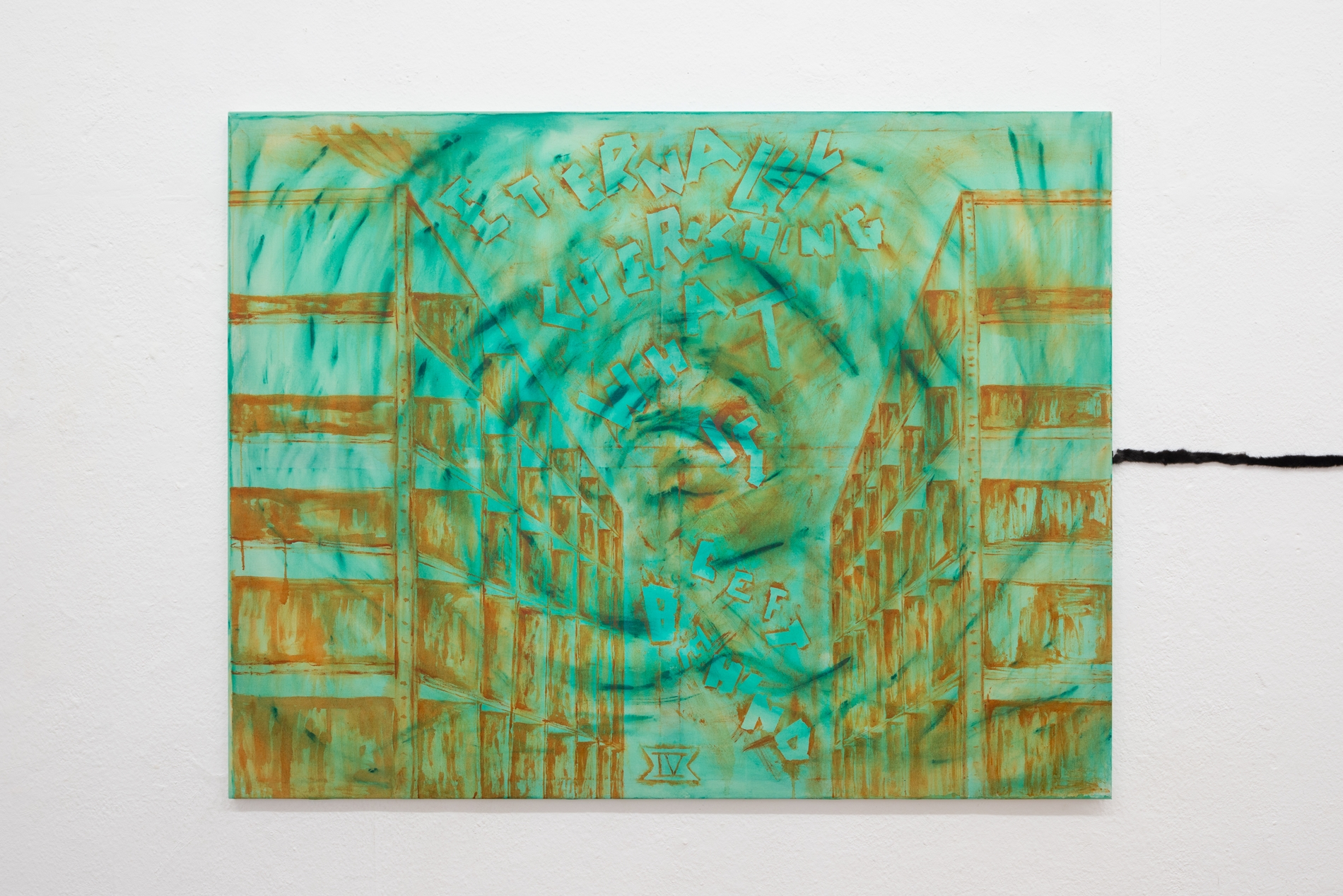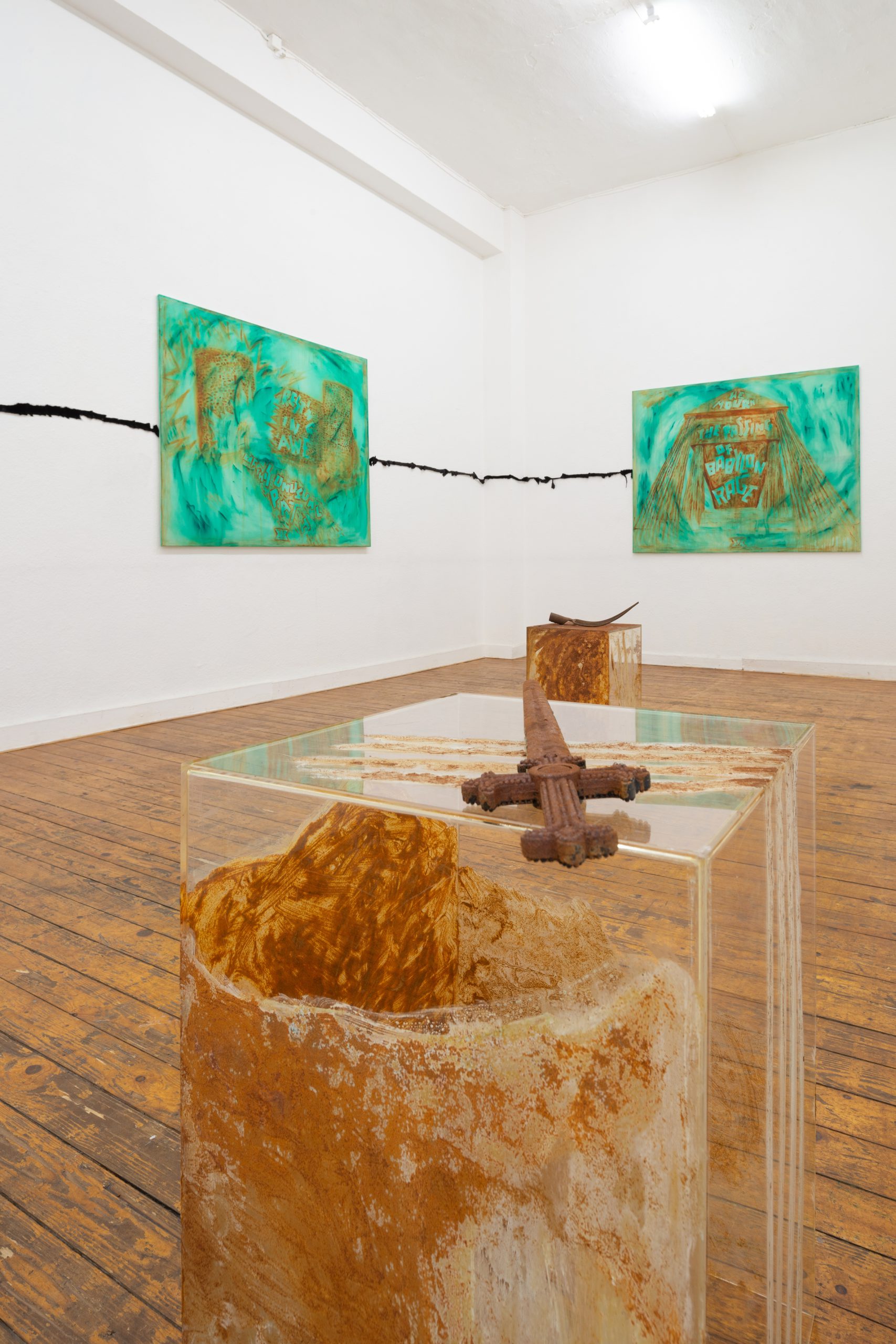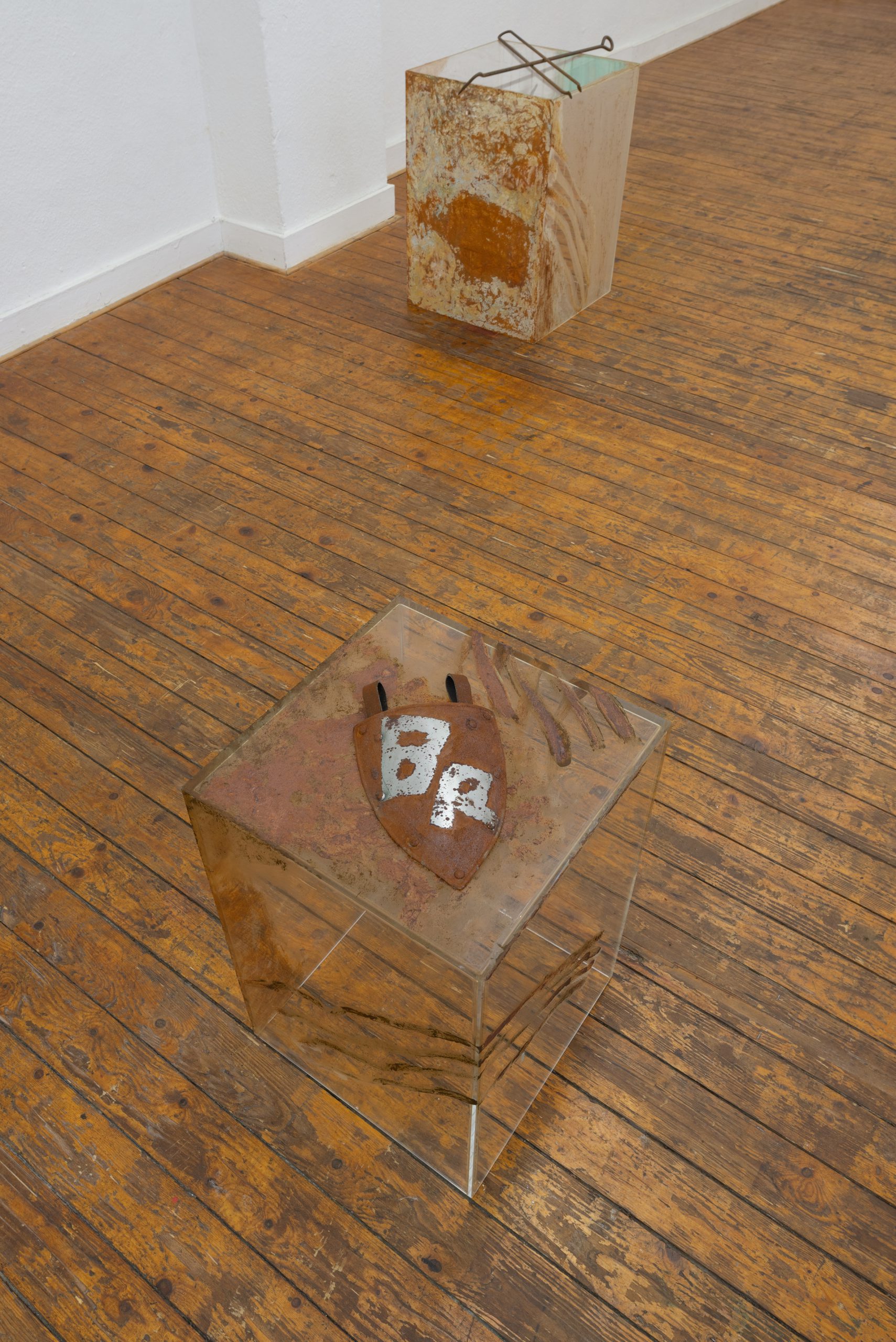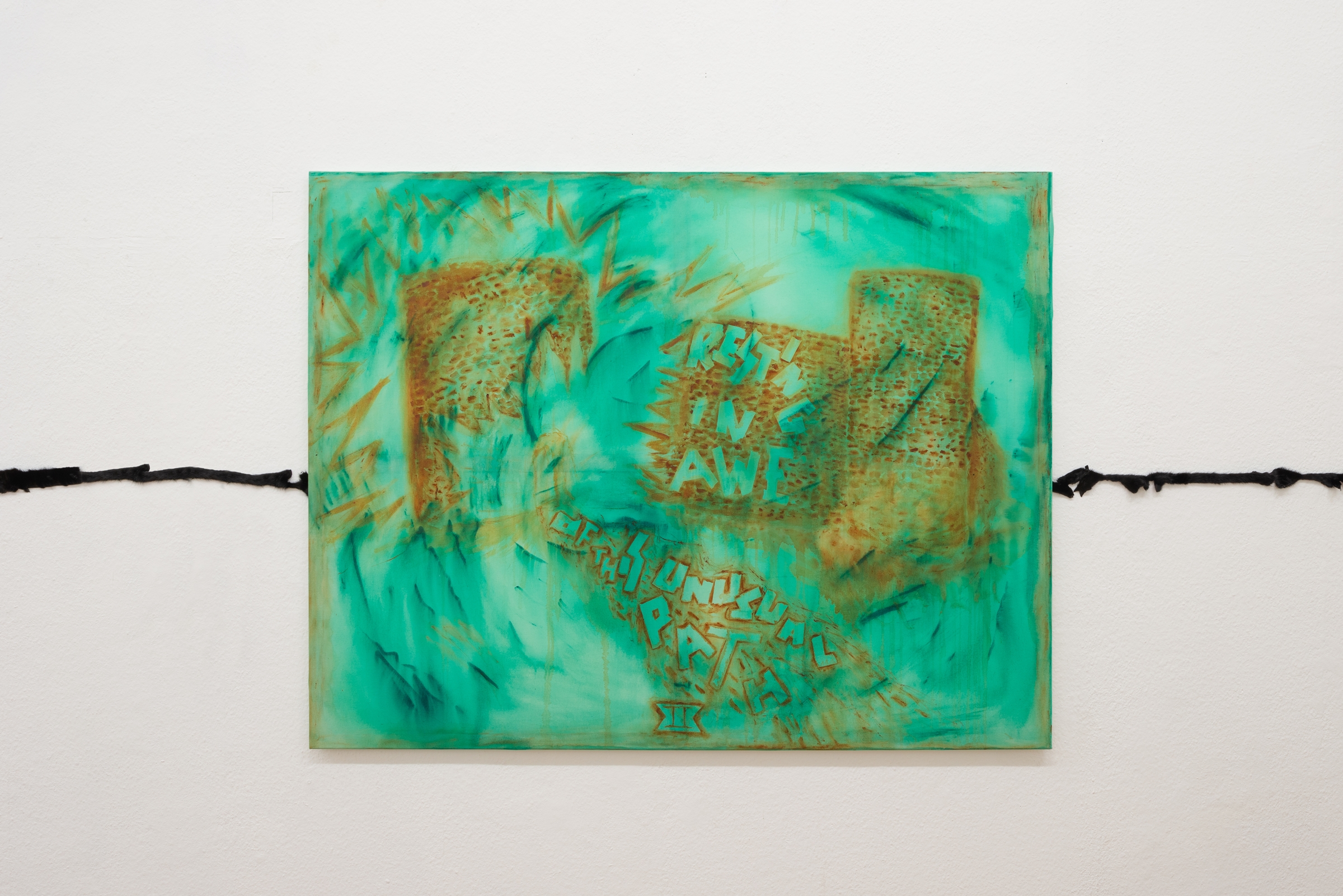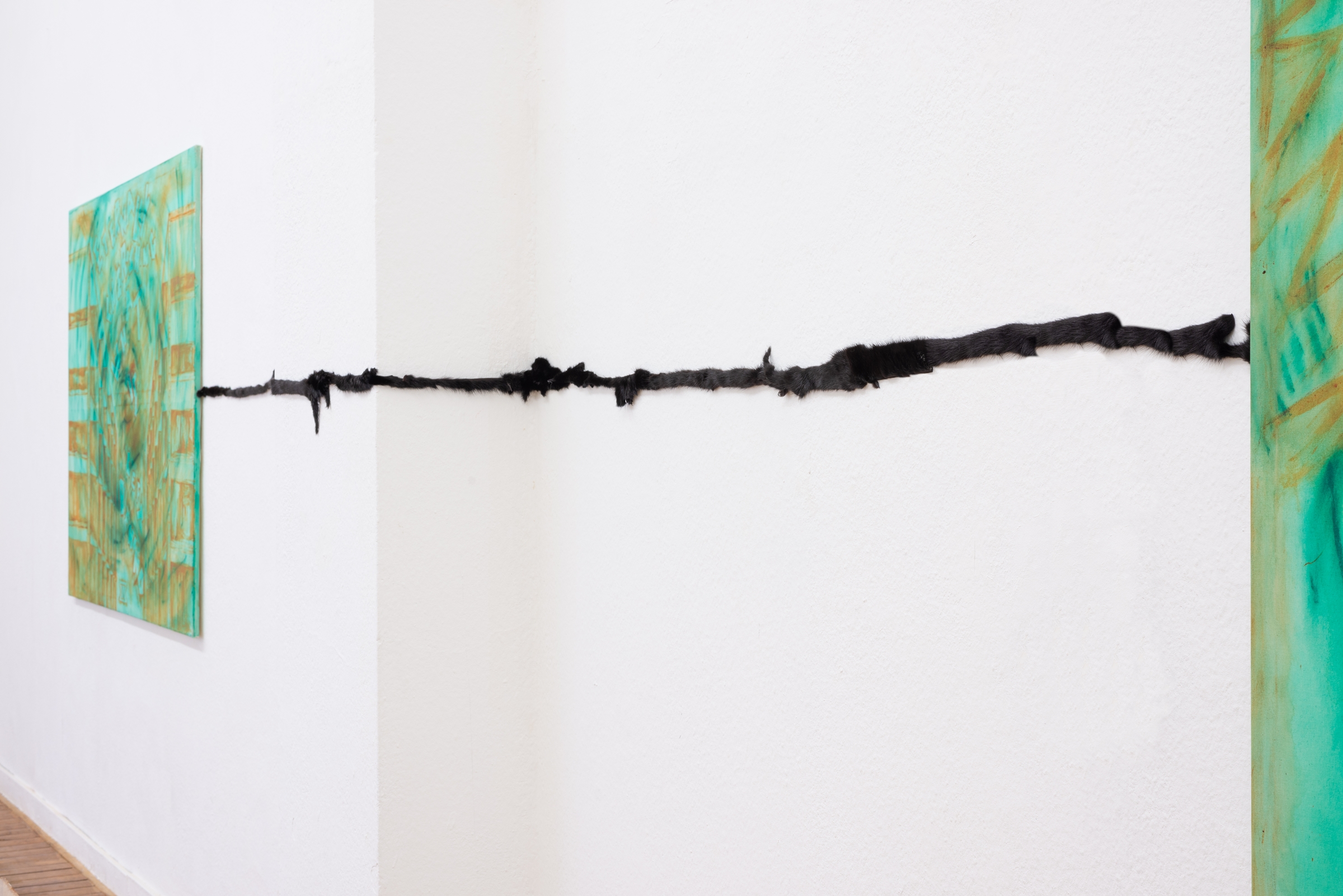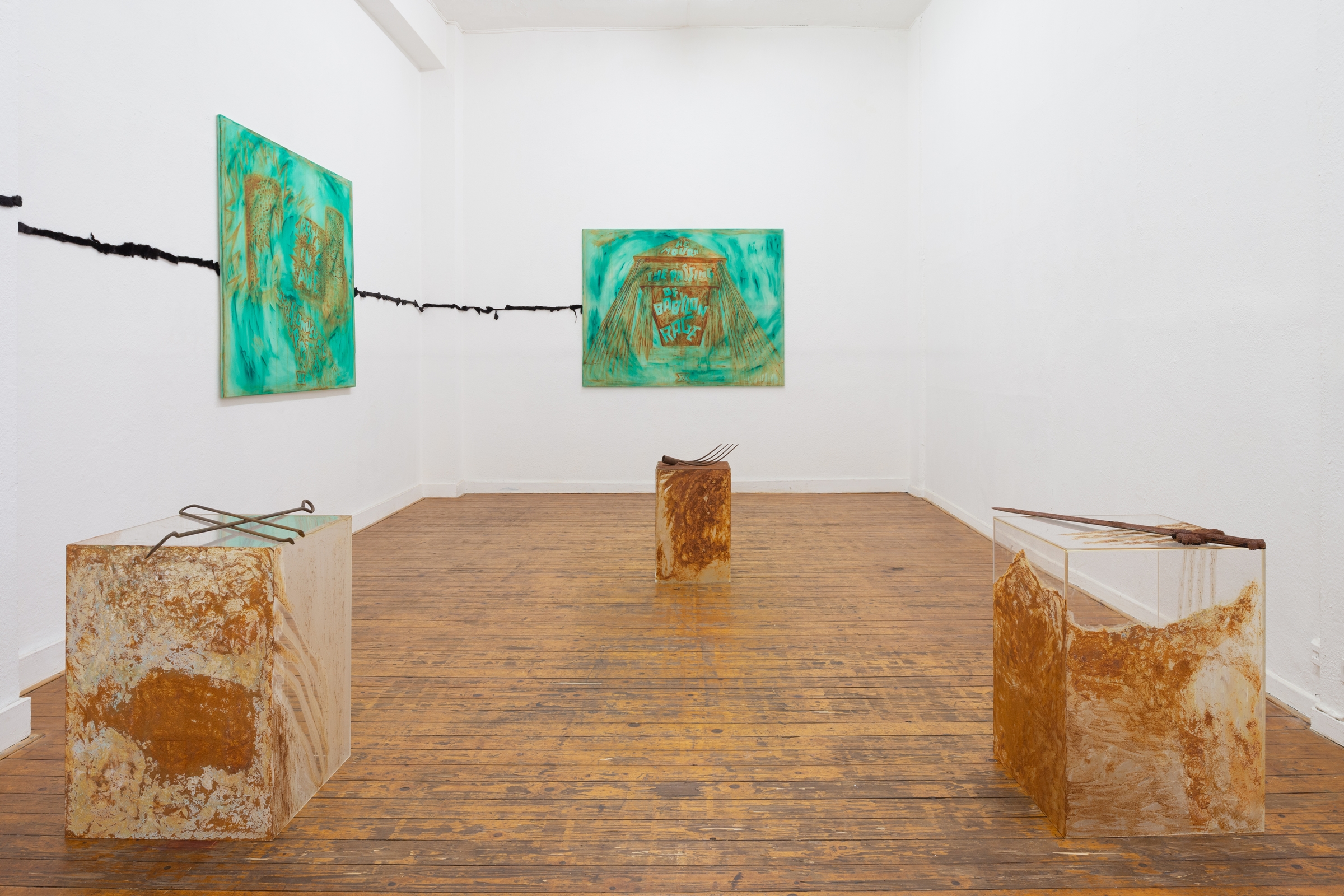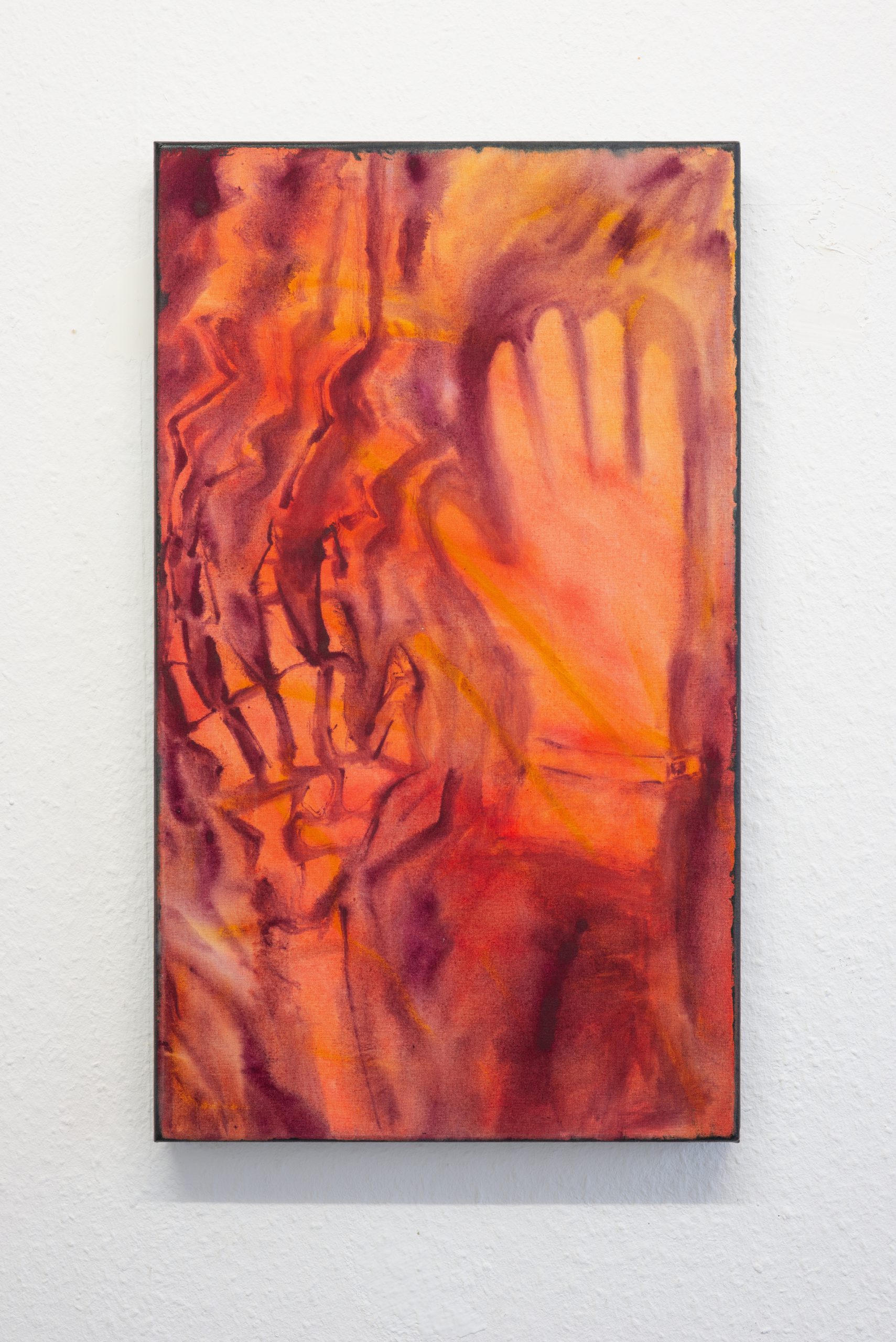The Collection of Babylon Rage Yana Tsegay September 1 — 30, 2023
Venue
Moltkerei Werkstatt e.V.
Moltkestr. 8
50674 Köln
Germany
Curated by Alexander Pütz
Special thanks to Bernhard Adams, Julia Woll and all Volunteers
Photos
Bernhard Adams
Design
Julia Woll
In her solo exhibition The Collection of Babylon Rage Yana Tsegay approaches the archive, thus delving into the legacies of individuals and the collecting practices of institutions. Archiving and collecting involve giving objects a special status of preservation. Arché stands for the beginning and the command, and the Greek word archeíon referred to the residence of the archons, where official documents were stored. In the Greek polis, the archons were both the keepers and interpreters of the law.
Even today, selection principles determine which exhibits make their way into collections. The larger the institutions and the more they are funded by public money, the more responsible they are for conserving cultural memories sustainably in collections. Art collections ultimately aim to contribute to shaping cultural memory and pursue a sense of „identity concreteness“ as they house objectified culture that helps shape cultural identity.
Yana Tsegay intervenes in these often inaccessible structures and brings them back to ground zero. Through the fictional collection of the persona Babylon Rage, the artist examines the mechanism of archiving and highlights its fictionality. In doing so, she reveals the ambivalence of appropriation and recognition, which is a cultural construction. This construction of reality leads to hegemonic power dynamics that need to be illuminated. Cultural assets from the Global North often receive special appreciation, whereas those from the Global South are treated akin to attractions. The Collection of Babylon Rage counters a canonized art and cultural history.
Yana Tsegay imbues the inquiry about cultural memory with painting and objects reminiscent of a collection presentation. Many elements of the exhibition are oxidized; verdigris appears on the canvases, while the covers and display cases are overgrown with thick, earthy-blood-like rust. They have become carriers of significance and history—a temporality. Through their narration of the presence and absence, and the history of the collector persona Babylon Rage, they point beyond themselves.
Institutions representing a society’s artifacts and artworks must position themselves intentionally to embrace cultural changes that flow into archives as cultural heritage. What concepts of culture are inscribed in archives and collections, and how do they influence societies? With The Collection of Babylon Rage Yana Tsegay creates moments of contemplation and opens up opportunities for new arrangements and connections that challenge our social and cultural identity.




